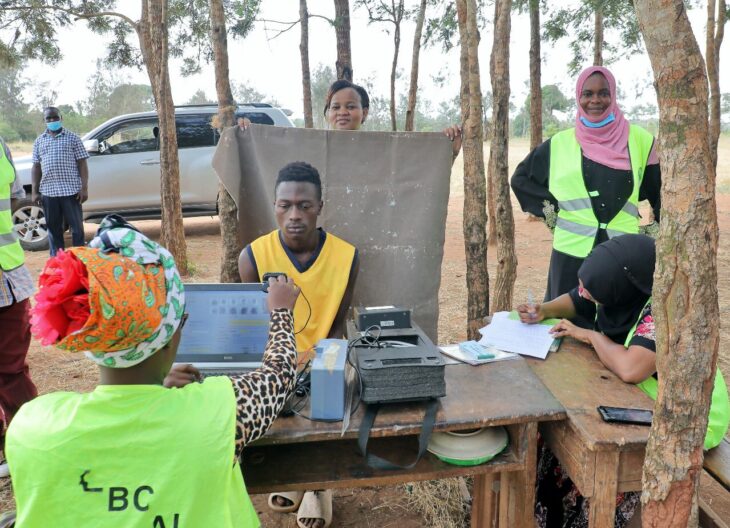NAIROBI,Kenya, Jan, 29 – The country is firmly preparing for the August,9,2022 polls.
Despite increased political temperatures nationwide, efforts by the Independent Electoral and Boundaries Commission (IEBC) to register an overwhelming number of new voters, the ongoing registration exercise continuous to be marred with challenges among them a registration apathy from the youth.
Phase two of the electoral body’s registration drive has recorded a low turnout since commencing on January 17,2022.
The Enhanced Continuous Voter Registration (ECVR) exercise will end on February 6, 2022 with the poll body saying it hopes to register 4.5 million new voters.
Encouraging youth to participate in the electoral process is said to have been the biggest challenge yet despite the stakes being high: electing competent and responsible leaders.
The connection between the political class and young people dates back several centuries and despite the change in time, this relationship hasn’t evolved to the point where young people are fully engaged in democracy, the current mass voter registration drive being,’exhibit A’.
“For a population of 75% falling under the youth category you would be a fool not to target the youth as we engage in this democratic exercise. Why we must focus on what we are calling the virgin voters to get them registered is because times are changing, our politics is shifting even in terms of development in the country,” said Gloria Orwoba, political aspirant.
“This time around its important to engage them, because youth have to decide where they want to go, in terms of this country and whose going to lead them to that. But they are not having that conversation for many. They are sort of sitting on the sidelines, some are very apathetic, they feel the choices that are there non is appealing, others are just rebelling, they feel this system work, why participate,”Nerima Wako, Executive Director, Siasa Place.
With every five-year cycle, persons who have never voted before are targeted, and this election year hasn’t been any different.
Those targeted have given various reasons on why they have or have not chosen to be part of the political process and governance in general.
“Why would I register to vote? Our leaders have promised to day various things for us in order to thrive in this country but they have hugely under-delivered,” said an unregistered youth.
With an approximate average age of 19, many in the Kenyan population are targeted to make this significant step for the very first time.
Executive Director Siasa Place, Nerima Wako believes that this conversation of fully engaging young people in democracy, going forward should be an everyday dialogue and not just every 5 years.
“Even just the mediums, while we talk of them being on social media. alot of them are still listening to the radio, and what kind of content is being spewed on radio.” she said.
“We have our conventional way of doing things and we are expecting that the youth will come on board to our conventional way. As opposed to thinking the youth have gone, they are on TikTok and other digital platforms. They have a different way of consuming information and digesting it and seeing that I’m going to take this information and act on it ,” said Orwoba.
The political class has been challenged to engage young people in civic education, in their gatherings and not just rally up the numbers to amass votes later in the year.
“Before political parties never had barazas with college and university students, what they used to do is pick a youth league leader who comes from a particular university and hope that they would just act in those spaces without intentionally going a step ahead to say no, as a political party are we summoning these people to hear what they need,”
The United Nation’s agency on youth has strong evidence that the participation of young people in formal, institutional political processes is relatively low when compared to older citizens across the globe.
This situation challenges the representatives of the political system and leads to the disenfranchisement of young people.
During phase I of the ECVR exercise between October 4 to November 5, 2021, IEBC managed to register 1,519,294 eligible Kenyans as new voters out of a target of six million nationwide.
Want to send us a story? Contact Shahidi News Tel: +254115512797 (Mobile & WhatsApp)


